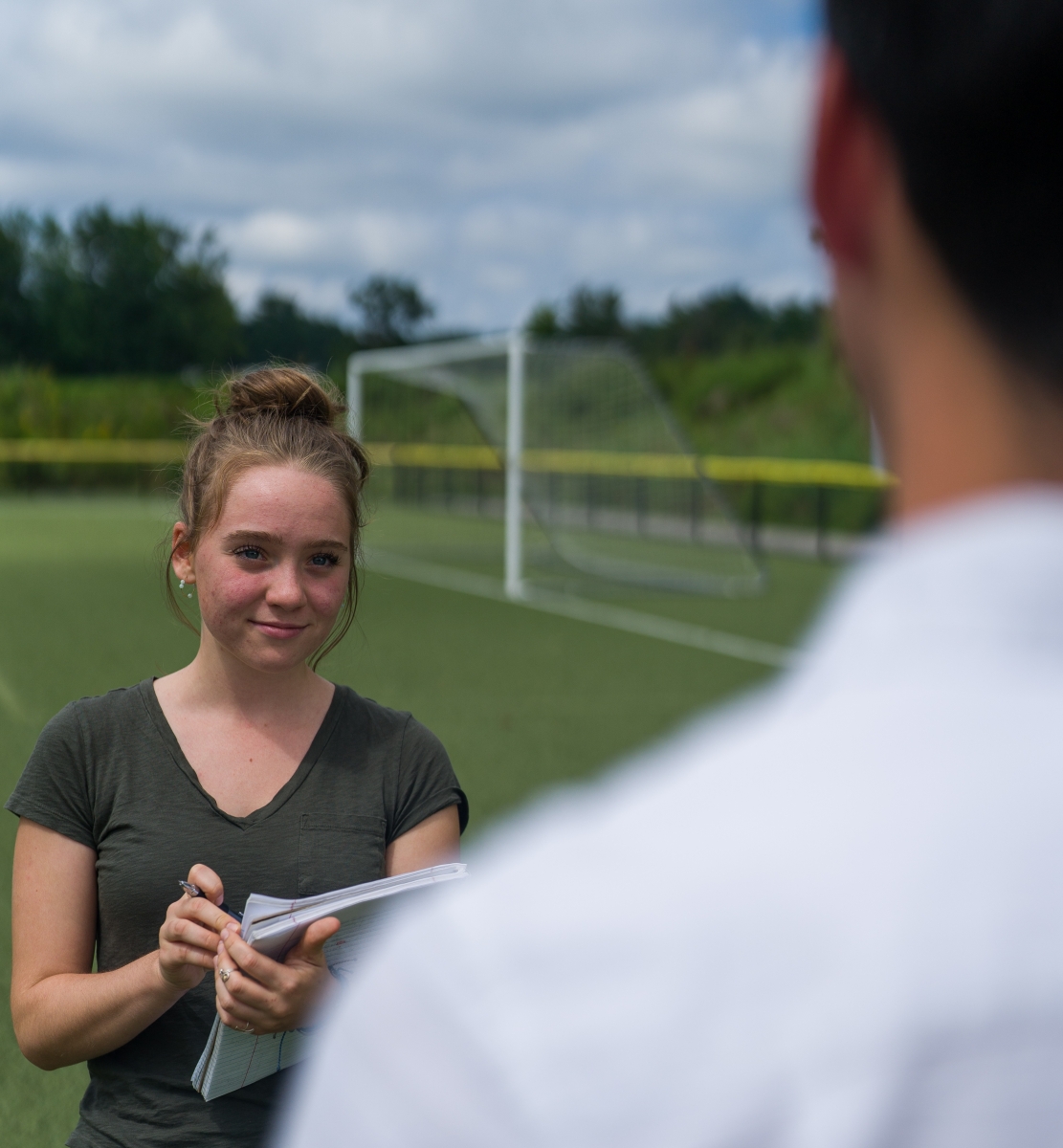In every incoming student campus tour, UNH boasts its prestigious research opportunities. When I was at the dinner for prospective Hamel Scholars class of 2024, I shook a lot of hands with faculty who were eager to tell me what exciting research was being conducted in their department. Those conversations often ended with me saying something like, “That is wonderful, but I don’t think research is for me,” and because I didn’t want to hurt any feelings, I would add, “but I’ll keep this in mind in case I would like to explore research!” At that point, to me, research was math, stats, reports, and experiments. As a communication major, none of that was appealing to me—all I knew was that I never wanted to take another science class again.

I am so glad to write that research is much, much more than microscopes and calculus. The Hamel Center has designed this summer Research Experience Apprenticeship Program (REAP), for students who have completed their first year of school. This program gives these second-year students a taste of what research in their field could look like working under a faculty mentor. Students can propose their own projects or be incorporated into the mentor’s up-and-running projects.
When I interviewed Dr. Tarkington Newman, professor of social work, as a possible faculty mentor, I became aware of two things: my understanding of the research world was very small, and I definitely wanted to work with this guy. I come from a world of skateboarding, surfing, and snowboarding—these sports make me who I am—so to meet Tark and see that he has a man bun and says “gnarly” made me feel very comfortable and confident. It is important to feel comfortable with your faculty mentor, excited about the projects you’re working on, and confident working with the other researchers and assistants.
I am the co-founder of Down the Line Ministries, which seeks to bring community into skateboarding, surfing, and snowboarding where there are significant mental health crises, financial instability, and substance misuse. Because of my involvement here, I am intrinsically interested in mental health as it intersects with sports. These themes are very present in the world of social work, which is why Tark as my faculty mentor was perfect.
I was able to jump into two of Tark’s projects. In the first project, Sport Coaches as Social Workers, a grad student and I worked to conduct virtual interviews to determine how being a social worker influences the coaching practice and philosophy of youth sport coaches. With each social worker we interviewed, we had two organic, hour-long conversations. For the second project, I co-facilitated virtual focus groups that consisted of a variety of groups including student athletes, athletic trainers, administration board members, etc. This project was done in support of a mental health research initiative by the America East Conference, for which a nation-wide team is working to build a virtual survey to be sent to universities to reveal the mental health of student athletes. As we are now in the analysis phase of our research, we will use the findings from these conversations to direct the construction of the survey.
It was a gift to learn about myself and my abilities and to push the boundaries of my interests this summer. I participated in real-world research projects, and I never had to solve a single math problem—for which I am very happy. I am falling in love with this corner of social work, communication, sport psychology, and qualitative research. Because of this, I decided to stay on as a research assistant throughout the school year to be able to participate in the coding, analysis, and publication phases of these projects. I want to see these projects to completion.
I am grateful to admit that that bubble that was my small-mindedness surrounding research has been thoroughly burst by REAP. I have seen the perseverance, creativity, and undying wonder that is required to pioneer research, and that is not something I’d like to become blind to again.
